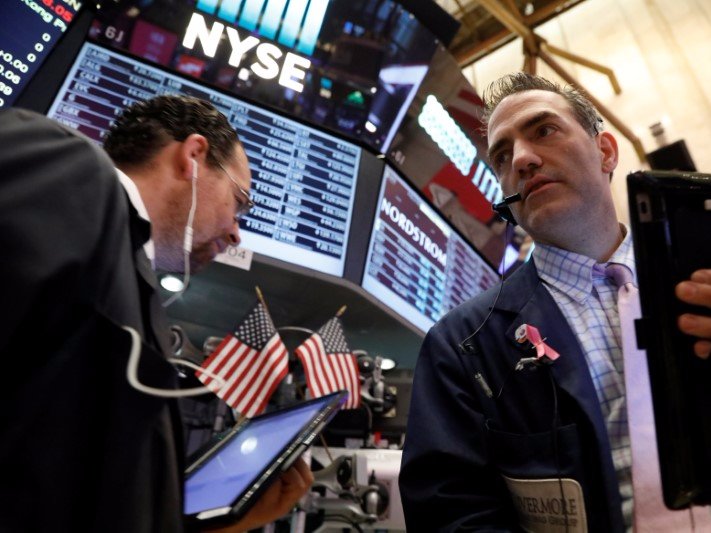 Traders work on the floor of the New York Stock Exchange in New YorkThomson Reuters
Traders work on the floor of the New York Stock Exchange in New YorkThomson Reuters
LONDON — Record inflows into exchange-traded funds (ETFs) could be inflating a bubble in the US stock market, the Financial Times reports.
US investors have put $391 billion (£300 billion) into ETFs this year, already surpassing the record $390 billion spent in the whole of 2016, London-based consultancy ETFGI told the paper.
ETFs are on their way to becoming a majority of all stock held:
- ETFs are 37% of all equity fund assets.
- Passive and quantitative investors are about 60% of the US equity asset management sector, up from under 30% ten years ago, according to JPMorgan analyst Marko Kolanovic.
An ETF is a passive fund which tracks an index, rather than an active investment, which seeks to outperform a given index through frequent buying and selling of individual investments. Growing numbers of investors are opting to invest in ETFs rather than actively-managed funds, which are associated with higher fees, and have offered lower returns over the last decade.
The fear is that ETFs have created their own bubble-like momentum: As ETF returns have beaten active managers, more money has gone into them. As more money goes in, the price of the stocks being bought rises. Those rising values attract more money, and so on. ETF investors don’t care whether stocks are over-valued, only that they’re buying a representative slice of the market.
That has prompted well-known money managers to warn of the effect of passive funds on asset prices, and the danger of a liquidity squeeze when the market is under pressure. (Of course, money managers have a vested interest in people not putting their money into ETFs.)
Howard Marks, co-founder of US alternative investment manager Oaktree Capital, writes in a note:
“Does that mean passive investing, index funds and ETFs are a no-lose proposition? Certainly not:
- While passive investors protect against the risk of underperforming, they also surrender the possibility of outperforming.
- The recent underperformance on the part of active investors may well prove to be cyclical rather than permanent.
- As a product of the last several years, ETFs’ promise of liquidity has yet to be tested in a major bear market, particularly in less-liquid fields like high yield bonds.”
He also warns the increasing dominance of passive funds could undo the returns they currently offer.
He says:
“The wisdom of passive investing stems from the belief that the efforts of active investors cause assets to be fairly priced – that’s why there are no bargains to find. But what happens when the majority of equity investment comes to be managed passively? Then prices will be freer to diverge from “fair,” and bargains (and over-pricings) should become more commonplace.”
Paul Singer, chief executive of $33 billion hedge fund manager Elliott, warned that passive funds were “destructive.”
He told investors in July in a note seen by the FT: “What may have been a clever idea in its infancy has grown into a blob which is destructive to the growth-creating prospects of free-market capitalism.”













